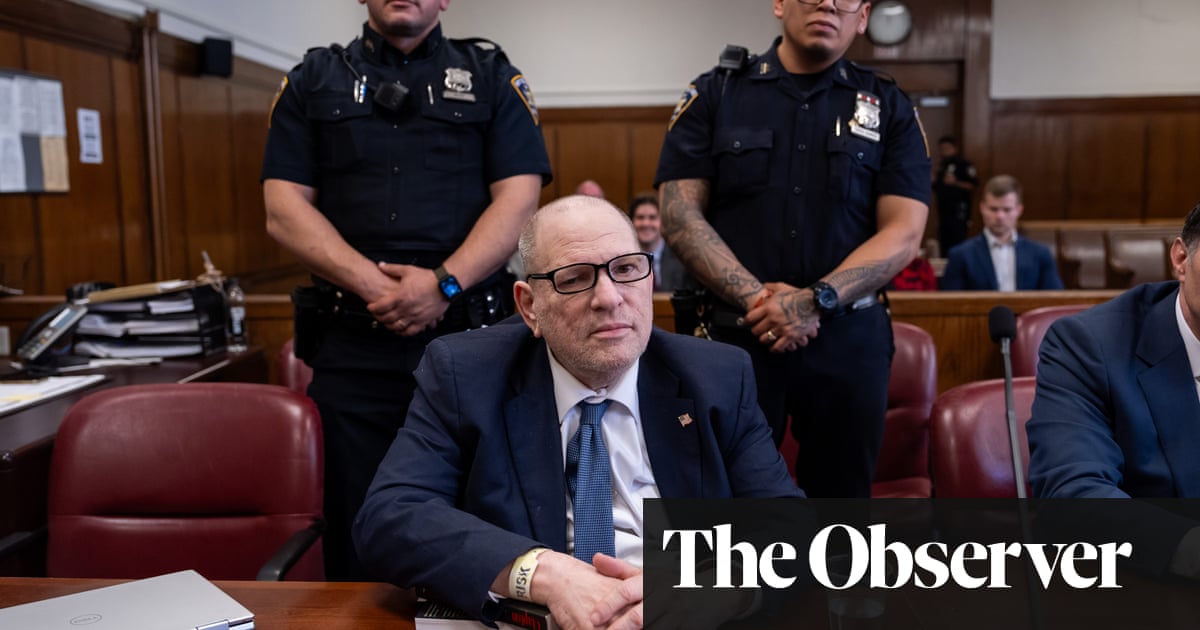Harvey Weinstein’s key accusers were famous – from Angelina Jolie and Gwyneth Paltrow to Lupita Nyong’o and Ashley Judd. These Hollywood film stars spoke out against the ex-studio boss’s abusive behaviour in 2017, fuelling the international #MeToo movement.
But Weinstein’s crimes and bullying practices had a direct and lasting impact on many more, including unknown names who worked with him in London.
These assistants and aspiring actors had to cope with the worst excesses of an entertainment industry that did not only countenance exploitation but accepted it as part of the deal.
Lisa Rose, a British actor who worked at Weinstein’s Miramax office on Chelsea’s King’s Road in the 1990s, remains disturbed by memories of that time, and feels guilty about accidentally putting others at risk. Now, as Weinstein prepares to appear in court again in New York this week, facing aretrial of his two 2020 convictions, Rose is taking her message around Britain in a solo stage show.
“I want to talk about it honestly because people have forgotten how widespread the damage was,” she said this weekend. “It was a culture that put young women at risk all the time. There are intimacy coaches now. It may be better now, but it has not gone away.”
Rose’s candid one-woman show,Too Small to Tell, is designed to remind audiences how the film business allowed Weinstein to operate with impunity. Bosses were to be obeyed and aspiring actors and office juniors were fair game. Rose has changed the names of those involved, but says everything is rooted in fact: “I wanted to tell it from the perspective of an ordinary woman.”
The appeal of the glamour of the smart offices and the A-list contacts file quickly palled for Rose as she became aware of the atmosphere of fear in the building whenever Weinstein was in the country. She soon learned his requests for an assistant to work with him alone in his room over at the Savoy hotel were to be avoided at all costs, but the shouting outbursts were impossible to dodge. Like many others, Rose says she was asked to perform demeaning tasks.
The show, which has its final performance at London’s Gatehouse Theatre on 20 Apriland goes on next month toBrighton, also sets out the perils of auditioning and is frank about how common abuse was.
“As an actress I had bad experiences both in a film and at auditions. Then I went to work as an assistant at Miramax, where it became apparent it was a big problem. I feel awful for getting a 17-year-old friend some office work there when I thought it was safe. She was assaulted. My show is about me realising that although these stories may be small, they are important.”
Weinstein, 73, was the producer of major box office hits such asPulp FictionandShakespeare in Lovewhile he ran Miramax, alongside his younger brother, Bob. More than 80 people have now come forward to attest to his abuse since the initial investigations by theNew York Timesand theNew Yorkerled to his exposure. But he is now to be tried again at New York’s court of appeals after it was found last year that legal improprieties and prejudicial testimony may have influenced the original judgement against him, leading to his23-year prison sentence.
The disgraced producer is due to plead not guilty, denying all counts of rape and sexual assault.
Evidence will be presented once again accusing him of raping aspiring actor Jessica Mann in a Manhattan hotel in 2013 and committing a criminal sex act on TV production assistant Mimi Haleyi in 2006.
He is also to be charged with another criminal sex act in Manhattan, based on a new allegation from an anonymous woman who was not part of the original trial.
Frail and in poor health,Weinstein has been repeatedly hospitalised. But his lawyer, Arthur Aidala, claims that the full evidence now presented will confirm that his relationships were consensual and so persuade the jury he is not guilty.
The three survivors of Weinstein’s alleged crimes are expected to testify over five to six weeks, with the trial likely to conclude at the end of May.Weinstein will not go free even if he is acquitted because of his 16-year prison sentence for a 2022 rape conviction in Los Angeles.
However, his lawyers are currently arguing that this, too, should be re-examined, claiming the New York verdict would have influenced the judge’s calculation.
This article was amended on 20 April 2025. An earlier version incorrectly includedSex, Lies and Videotapesamong films produced by Harvey Weinstein. His Miramax company was the film’s distributor once complete, but was not involved in its production. The article was also amended to remove an unrelated detail.
